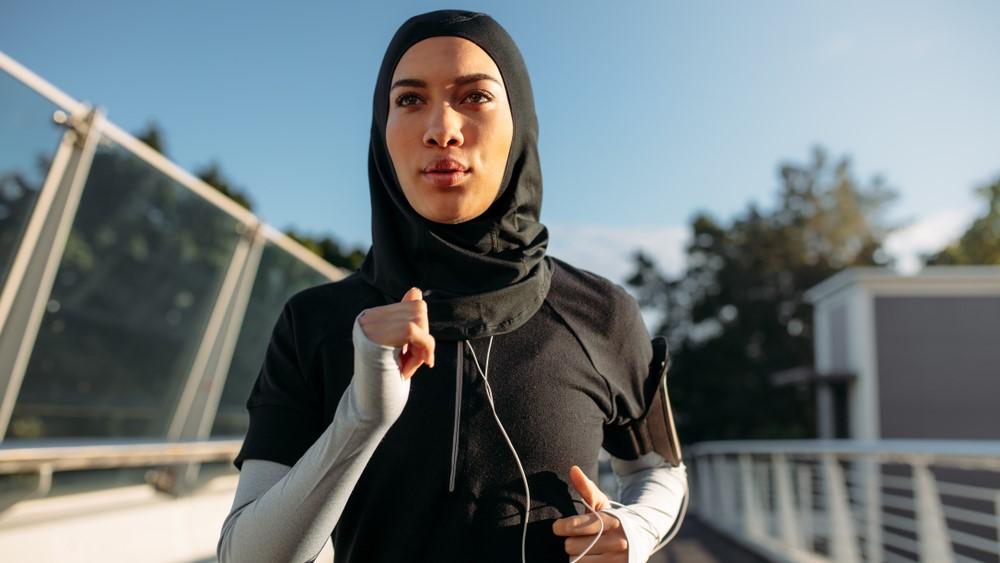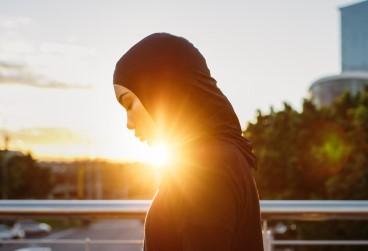
One of the main questions that Muslims ask in the lead-up to the ninth month of the year is should you exercise during Ramadan?
On top of this, many wonder how to exercise during Ramadan. Since you’re not permitted to drink or eat during the day, your body can feel much weaker, making visiting the gym during Ramadan much more difficult.
This can be tricky to come to terms with for the fitness conscious, as Ramadan is a time in which you may lose muscle tone. This could potentially interfere with your overall fitness goals, but it’s important not to get disheartened. Your fitness journey will present ups and downs, and you must give your body allowances during Ramadan. Read on to find out more Ramadan tips regarding exercise.
So, can you exercise during Ramadan? First things first, it must be recognised that Ramadan isn’t a time to build your fitness or tone but rather to maintain it. As a result, you shouldn’t be looking how to gain muscle during Ramadan. It’s not sensible to train at 100% intensity, nor will it be likely that you’ll manage to achieve this. If you regularly exercise, you might continue to frequently work out at a much lower intensity to prevent weight gain and muscle loss. However, if you’re not particularly active, Ramadan isn’t the best time to put this strain on your body.
If you’re scratching your head about how to stay active in Ramadan, you should probably aim to exercise between two and three times per week. A useful routine to follow would be three times a week on alternate days. It’s a good idea to pencil in these workouts ahead of Ramadan as this encourages you to commit without any excuses.
It’s a good idea to stick to 30–45-minute sessions, depending on the intensity of the workout and your fitness level. For instance, a slightly more intense workout may go on for half an hour, whilst a moderate workout may last for 45 minutes.

If you’re wondering how to train during Ramadan, your workout should be about 50% less intense than a workout outside of Ramadan. You should lower the weight of your equipment, reduce the number of reps, increase your rest time, and opt for the easiest option available. For example, instead of jump squats, you should do normal squats. It can’t be stressed enough that Ramadan isn’t the time to push yourself to your limits or try unfamiliar exercises.
It’s no secret that working out while fasting during Ramadan isn’t the best idea; you should only exercise when you have fluid and food in your body. In fact, dehydrating a muscle by as little as three per cent can result in a 12 per cent loss of strength. Therefore, you should do a workout after Iftar, after Tarawih prayers, and before Suhur.
After Iftar, your body will be fuelled by a small meal and an intake of liquids; however, prayer time might limit the amount of time you have available for a workout. Consequently, when exercising after Iftar, you might opt for a slightly higher intensity workout spanning 20-30 minutes.
If you can’t quite squeeze your workout between Iftar and Tarawih prayers, it’s not too late to exercise after this. During this time, it’s permitted to consume a post-workout meal or shake so that you can aid your body in its recovery.
Finally, if you have the willpower to get out of bed early, you can slot your workout session before Suhur. Exercising at this time can be particularly beneficial as it can provide you with energy for the remainder of the day. Just be sure to drink plenty of water before and after the workout, eat a snack around half an hour before, and enjoy a nutrient-dense Suhur meal after.
If you’re wondering how to get the best out of Ramadan workouts, unfortunately, cardio isn’t the way to go. As a result, running during Ramadan probably isn’t the best idea, as your body won’t have the energy to do this. Instead, you should focus on strength training to avoid any muscle loss during this time. If you’re desperate to squeeze in a cardio session, you shouldn’t do this more than two times a week, and your sessions shouldn’t exceed half an hour.
What Should You Be Eating?
If you were previously calorie counting, you should refrain from doing this during Ramadan as your body will need the right number of calories to function throughout the day. With this being said, you shouldn’t be getting your calories from sugary foods or those with a high white flour content, as they can make you feel lethargic throughout the day. Instead, you should consume slow-releasing foods full of nutrients to feel relatively energised during daylight hours.
Drinking water is hugely important during Ramadan, and you should aim to drink around 2.5 litres per evening. This should be spread across the duration of the evening so that your body is able to store water - even during fasting hours. Similarly, you should aim only to drink water, as tea, coffee, or carbonated drinks will dehydrate you in the long run. On top of this, you should steer away from salty food as this will also make you thirsty, which won’t be helpful.
We’re all extremely lucky to have this privilege of safe water, as Muslims across the globe go without it on a daily basis. Here at ILM, we want to ensure that everyone in the world has ready access to clean drinking water, which is why we’ve established our Water Appeal.
If you wait until Ramadan commences to eat clean, drink water, and exercise, your body may not be prepared and go into shock. This can be particularly dangerous when you’re not drinking or eating for most of the day because your body doesn’t have the strength to handle it. Therefore, you should ease yourself into this lifestyle ahead of Ramadan. This will make the transition into fasting much more manageable.
Although fasting is integral to Ramadan, the month is also about bringing yourself closer to righteousness and strengthening your connection with Allah (SWT). You can achieve this by donating to ILM today.